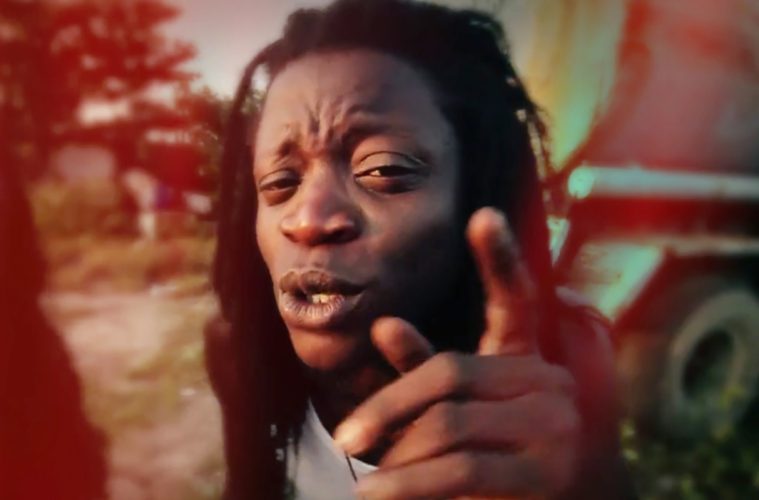Davido infamously said that he hasn’t made a dime from selling his music. I expect that to have changed in the last few months because if it hasn’t then all these contracts that artists are signing with Sony Music aren’t worth the paper they are printed on. There’s one aspect of Sony’s involvement that’s still a mystery to me however, and it’s who handles the publishing aspect.
Publishing is the money due to everyone involved in making a song, in the form of royalties, every time that song is played in public. The great thing about publishing is that, if they get their paperwork right, songwriters and producers too will get paid along with the recording artist. In the US, Sony Music has a subsidiary called Sony/ATV that handles publishing for its artists but artists mustn’t sign publishing deals with the record company they are signed to. If Sony Music West Africa gets involved in that aspect of the business, to my mind, it’s the behind-the-scenes guys – who are currently getting shortchanged – that will benefit the most.
Last week, the chickens came home to roost as a version of “Gbagbe Oshi” was leaked to the internet and it didn’t have Davido on it. Instead, it had unmixed vocals from General Pype that confirmed why OBO was trying so hard to sound like a dancehall act on the record. We had no idea that the song was actually written by Pype but we should have, Davido left this part on his own version of the record were Pype made his name into an acronym.
Me a the Prolific Youth Positive Entertainer
Call me the jagaban, son of a gun
When we reviewed his first project on Sony Son of Mercy, we questioned the authenticity of “Gbagbe Oshi”.
Davido intros the aggressive “Gbagbe Oshi” with an awkward attempt at rapid-fire toasting, before going on to combine pidgin, Yoruba and patois with noticeable discomfort on one of the worst-written songs in the singer’s catalog.
Boy na tough, una dey distinguish /
I love my team like a satellite dish /
Except you’re a DStv installer, and that’s how you pay your bills, I can’t for the life of me understand why you would have any affection for satellite dishes. The record is saved by a grimy beat provided by long-term producer Shizzi. (Read more)
According to Pulse, Pype’s version is a reference track which he had performed before at Industry Nite and was paid N1m to hand over to Davido. N1m is a freakishly low number especially because, if the reports are true, then Pype released it as work for hire and may not be entitled to any royalties from the record going forward. The royalties conversation is important because with Sony’s push, there’s no telling where “Gbagbe Oshi” would end up. The song could rack up airplay in countries where royalties actually matter. It could be sampled on international projects or even be used in its entirety like “Skelewu” was on the soundtrack for the Disney movie Queen of Katwe. Unfortunately, being that he was reportedly paid off, Pype could be cut out of any future arrangements where “Gbagbe Oshi” is reused.
In Nigerian music culture an artist is implicitly expected to have written all of their own material – the contribution of others isn’t documented properly so the assumption is that it doesn’t exist. This now creates a situation where when we find out that the artist got help, we see them as being less talented than others who do not have those rumors circling around them. But these are unrealistic expectations that will confine artist creatively and kill their careers in the long run.

Runtown reportedly paid Runtown N1m for “Aye”
It is common knowledge that Davido collaborates with songwriters sometimes to keep his train of hits on track. I do not think it takes away from who he is as a recording artist because writing a song and recording a song require two different skill sets and profiles to pull off. If the goal is to make hit music that keeps everyone who worked on a song some money, then it shouldn’t matter who wrote it. If the culture of songwriting isn’t allowed to thrive in our music space, then we give a chance for the black market alternative called ghostwriting to continue.
To think that some of your favorite music wasn’t written by your favorite artist is to live in a world where children ride unicorns to school and women are too pretty to do the number 2 in the bathroom. The danger with allowing this culture of ghostwriting to continue is that because the artist will lose credibility if the “secret” gets out, they’ll do everything in their power to ensure it doesn’t. This could include paying the ghostwriter off, not doing any paperwork with them and not giving them proper credit in the album notes. Without the proper credit, the ghostwriter can’t get the popularity and acclaim they need to keep getting contracted to write for others and without the right paperwork they potentially get cut out from all the royalties.
However, ghostwriting isn’t always a bad thing – some songwriters prefer to remain anonymous and there could be other business dealings where full disclosure of everyone involved in creating a record doesn’t make sense but unless these deals are allowed to happen on the table rather than under it, then the ghostwriter will continue to be the only kind of songwriter in Nigerian music.


